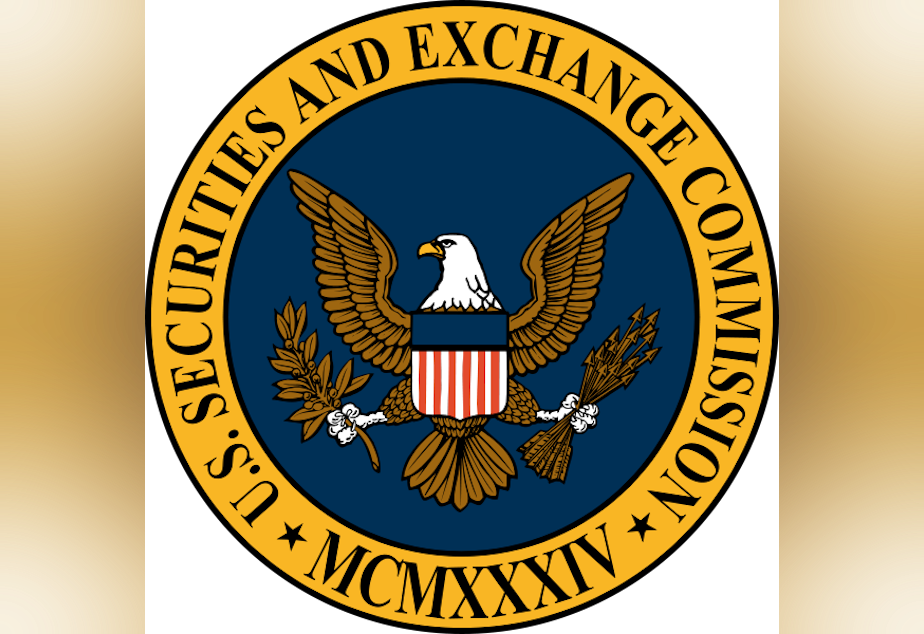Washington’s Top Firms Silent On Climate Risks Despite SEC Rule

If you own stocks or have money in a retirement plan, your money may be more at risk than you’re being told.Most publicly held companies — including some of the biggest companies in Washington — aren’t informing investors of the risks they face from climate change.
Companies that trade on the stock market have to tell their investors what financial risks they face. The Securities and Exchange Commission imposed that rule more than 40 years ago to help prevent financial fraud. Just three years ago, the SEC told companies they need to acknowledge how climate change might hurt their bottom line.
Most companies are brushing off the new SEC rule, according to a citizen researcher in California who pored over thousands of companies’ financial filings.
Lawrence Taylor found that only about a quarter of companies on the stock market even mention climate change in their required discussion of financial risks.
His findings echoed those of investors who monitor how big business is responding to climate change.
Sponsored
“It’s a serious risk for the economy,” says Jim Coburn with CERES, a coalition of investors and environmental groups based in Boston.
“We’ve already seen lots of physical impacts, and we see regulations affecting companies,” Coburn says. “So the real question for investors is which industries and which specific companies are most at risk and which are taking advantage of the opportunities.”
Coburn says the lack of disclosure in the SEC filings is a sign that many companies aren’t taking climate change as seriously as they should.
“If companies don’t address these issues, people face a lot of losses in their portfolios,” he says.
Companies are only required to address climate change in their risk assessments if they believe climate change is a “material” financial threat to their bottom line.
Sponsored
I searched the annual 10-K filings of Washington’s biggest companies, looking for the words “climate,” “warming,” “greenhouse” and “carbon.” Those words were nowhere to be found in the filings of PACCAR, Nordstrom, Starbucks or Expeditors International.
Amazon.com discusses the “economic climate” but says nothing about the actual climate.
Costco and Microsoft acknowledge that extreme weather could hurt their operations and that climate policies could increase their energy costs.
Of the Fortune 500 firms based in Washington, only Weyerhaeuser reveals any details about how climate is affecting the bottom line. The Weyerhaeuser filing says climate regulations could affect its biomass energy projects and its home-building business and that the company is positioning itself to exploit opportunities created by climate-change policies. The company has also reduced its greenhouse gas emissions by nearly a third over the past decade.
The SEC 10-K filing for the state’s largest private employer, Chicago-based Boeing, mentions carbon — but only as a raw material for its carbon-fiber planes.

